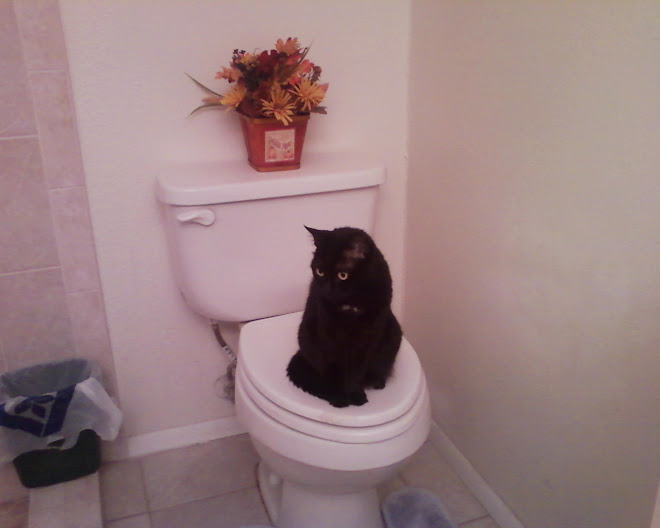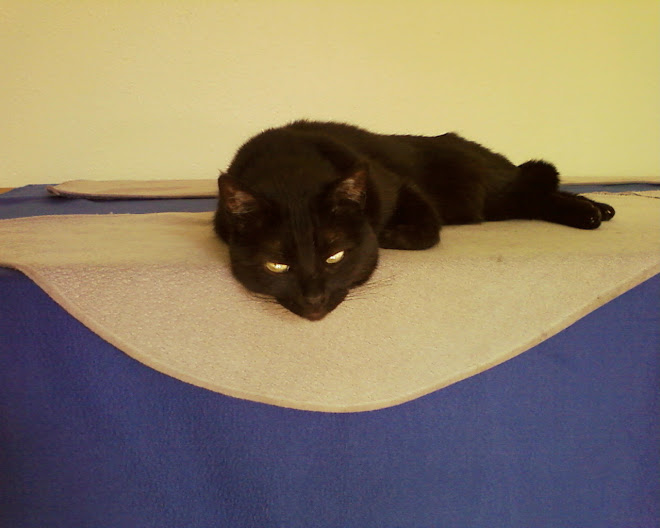Since I'm just certain you're all on the edge of your seats in anticipation of more egg enlightenment, I thought I'd share the following. When you're about to make hard boiled eggs these days you probably don't give it much thought. Can you imagine cooking in days of yore and not wonder how anything was accomplished with what they had available then? I bet they didn't know what indoor cat boxes were and poor kitty had to bury it's business in the snow...I can't even think about that. Anyway, before getting into the nitty gritty of egg boiling in today's times, here's some really old methods I'd bet you never knew.
As I told you yesterday, Mrs. Chef's BFF did some fantastic detective work to help make this interesting. The first recipe she was able to locate for hard boiling an egg came out of a reprint of a 1st bound edition dated 1961. "1859-1861 Beeton's Book of Household Management" by Mrs. Isabell Beeton. Her recipe reads as follows: "Have ready a saucepan of boiling water; put the eggs into it gently with a spoon, letting the spoon touch the bottom of the saucepan before it is withdrawn, that the egg may not fall and subsequently crack. For those that like eggs lightly boiled, 3 minutes will be found sufficient; 33/4 to 4 minutes will be ample time to set the white nicely; and if liked hard 6-7 minutes will not be found too long. Eggs for salads should be boiled from 10 minutes to 1/4 hour, and should be placed in a basin of cold water for a few minutes; they should then be rolled on the table with the hand, and the shell will peel off easily."
A tiny footnote was added at the bottom reading: "When fresh eggs are dropped into a vessel full of boiling water, they crack, because the eggs being well filled, the shells give way to the efforts of the interior fluids, dilated by heat. If the volume of hot water be small the shells do not crack because it's temperature is reduced by the eggs before the interior dilation can take place. Stale eggs, again, do not crack because their air inside is easily compressed."
My question is where did they teach all this egg-o-nomics in the 1800's anyway?
Here's one from 1876 called "76 Cookbook" by the Ladies of Plymouth Church, Des Moines, Iowa: "Put the eggs on in cold water and let it come to a boil, or place them in a saucepan of boiling water, being careful not to let them crack or break, by dropping them in. Three minutes will be long enough to cook them if desired soft, ten if hard.
Not long after in 1879 there was "Housekeeping in Old Virginia" by Marion Cabell Tyree. Our BFF tells us this was a particularly interesting book in that it was one of the first to list ingredients first rather than having the recipe in just paragraph form so you could get the ingredients ready...ah, yes the mise en place at last. Also it was quite the popular book written and published in the States, one of the Standards of it's time. BFF tells us these early ladies were the Julia Child, Martha Stewart or Rachel Ray of their day. This recipe only listed instructions for soft boiled eggs but BFF mentions it because it gives a recipe similar, for the time, for what could be considered a forerunner of the deviled egg called "Egg Cups-A Breakfast Dish" and it says that the eggs should be "boiled perfectly hard" even though there is no instruction on how long to cook the eggs for that. They cut the eggs in half and the yolks mix smoothly with butter, salt & pepper and a separately made sweet cream sauce, put back into the egg garnished with fresh parsley. (mayonnaise which is a mixture of beaten raw eggs, oil and seasoning was not safe to keep around back then without refrigeration.)
Next we find in 1889 "The Every-Day Cook-Book and Encyclopedia of Practical Recipes, For Family Use" by Miss E. Neill. This book only gave a recipe for soft boiled eggs but then in a later recipe uses a hard boiled egg with instructions to boil 6 eggs for 20 minutes before slicing them on bread and covering them with a cream sauce. Now back to the soft boiled egg one has to assume it's the same 6 eggs and 20 minutes but then actually boil the eggs not just leave them sitting in hot water. The book reads: "Place eggs in warm saucepan, and cover with boiling water. Let them stand where they will keep hot but not boil for 10 minutes". As our BFF says the book leaves a lot for a woman to guess but is still one of the early Standards of American cookbooks.
I'm going to let you chew on this awhile and we will return to more of the oldies next post.



No comments:
Post a Comment